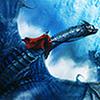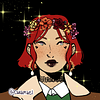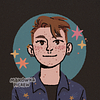Take a photo of a barcode or cover
adventurous
challenging
dark
mysterious
tense
medium-paced
Plot or Character Driven:
Character
Strong character development:
Yes
Loveable characters:
Yes
Diverse cast of characters:
Yes
Flaws of characters a main focus:
Yes
A Song of Legends Lost is an impressive debut that blends fantasy and sci-fi into a rich, character-driven epic filled with layered world-building, grey morality, and a truly unique magic system. From the first page, M.H. Ayinde immerses you in a world that feels vast, lived-in, and alive with cultural depth and political tension.
What sets this novel apart is how the magic system unfolds alongside a mysterious sci-fi thread, subtle at first, but increasingly important as the plot deepens. The blend is handled with care, and the way the truth of the world slowly unravels through shifting perspectives and revelations is incredibly satisfying. The plot twists are plentiful but earned, and they consistently reshape your understanding of what’s at stake.
The characters are where this book shines. They’re complex, flawed, and deeply human, caught in webs of power, legacy, and survival. Their moral choices are often murky, and that ambiguity makes the stakes feel all the more real.
If I have one complaint, it’s that the book occasionally feels overstuffed. There are so many fascinating characters and intersecting plot lines that I sometimes wished this story had been split into two books. I wanted more time with each arc, more breathing room to fully absorb each character’s journey.
Still, that’s a testament to how compelling this world is I didn’t want to leave it. I already plan to reread it and will absolutely be picking up the rest of the series. Highly recommended for fans of genre-blending epics, intricate magic, and morally complex storytelling.
What sets this novel apart is how the magic system unfolds alongside a mysterious sci-fi thread, subtle at first, but increasingly important as the plot deepens. The blend is handled with care, and the way the truth of the world slowly unravels through shifting perspectives and revelations is incredibly satisfying. The plot twists are plentiful but earned, and they consistently reshape your understanding of what’s at stake.
The characters are where this book shines. They’re complex, flawed, and deeply human, caught in webs of power, legacy, and survival. Their moral choices are often murky, and that ambiguity makes the stakes feel all the more real.
If I have one complaint, it’s that the book occasionally feels overstuffed. There are so many fascinating characters and intersecting plot lines that I sometimes wished this story had been split into two books. I wanted more time with each arc, more breathing room to fully absorb each character’s journey.
Still, that’s a testament to how compelling this world is I didn’t want to leave it. I already plan to reread it and will absolutely be picking up the rest of the series. Highly recommended for fans of genre-blending epics, intricate magic, and morally complex storytelling.
adventurous
emotional
inspiring
mysterious
tense
medium-paced
Plot or Character Driven:
A mix
Strong character development:
Yes
Loveable characters:
Yes
Diverse cast of characters:
Yes
Flaws of characters a main focus:
Yes
The world building was amazing and the introduction was fantastic, but I noticed that I had begun to despise the dialogue and had no connection to any of the characters. As interested as I was in seeing where the story went, I no longer wanted to read the book.
Reading slump has got me good. I might come back to this one when I'm in a better mindset.
adventurous
dark
tense
medium-paced
Plot or Character Driven:
A mix
Strong character development:
Yes
Loveable characters:
Yes
Diverse cast of characters:
Yes
Flaws of characters a main focus:
Yes
adventurous
tense
medium-paced
Plot or Character Driven:
A mix
Strong character development:
Yes
Loveable characters:
Yes
Diverse cast of characters:
Yes
Flaws of characters a main focus:
Yes
So many characters! Had a fair bit of trouble keeping track of them, but the story was very engaging. Wish I didn’t have to wait for the next book to come out!
Moderate: Death, Blood, Grief, Murder, War, Injury/Injury detail
Minor: Alcoholism, Death of parent
adventurous
dark
mysterious
tense
slow-paced
Plot or Character Driven:
A mix
Strong character development:
Complicated
Loveable characters:
No
Diverse cast of characters:
Yes
Flaws of characters a main focus:
Yes
I have not read much epic fantasy so this was a lot to take in. There were so many POVs and things happening that I kept feeling yanked out of the story every time I just started to get into it. This made my reading slow, but I was always compelled to return and learn more. This meant my affection for the characters was slow to grow.. I’m still not sure I’d call any of them lovable, but by the end of the book I at least felt invested in their stories. I still have so many questions about the world of the Nine Lands and the magic/tech system and their history. I am definitely interested in continuing the series. Hope I still remember what happened when the next one comes out. 😬
adventurous
dark
Strong character development:
Yes
Loveable characters:
Complicated
Diverse cast of characters:
Yes
adventurous
mysterious
medium-paced
I was really torn on how to rate this, because this is a good book, but I don’t know if I was in quite the right headspace to fully appreciate it. I do want to keep reading the series because the whole concept is really intriguing however I don’t think the writing style quite agreed with me.
This is a multi perspective epic fantasy, that has so much going on and so many levels to it, we have both grand wars and slum turf wars, all with and undercurrent of ancestral magic. There are a lot of perspectives in here, six main perspectives and 4 more across the prologue and epilogue, and I only liked 2.5 of them. My favourite perspective was Temi (who the whole summary was about and was criminally under portrayed) which was rough because we have a 350 page gap between her perspectives and she’s not in part 2 or 3, and I would have appreciated here having the odd chapter sprinkled in to break up the heavier (?) narrative. I also enjoyed Runt’s perspective especially as everything began to come together.
I don’t think the world building was particularly well established, and I think that this is probably why I would enjoy it more on a reread. This is because, for me, there is a difference between learning things along with the character, and never having the baseline of knowledge established in the first place. There was 8 pages of glossary at the very beginning, which u do find really off putting, I like to have it in there, but I think having at the end is a bit more reassuring, because to start by having to define everything suggests that it won’t be explained in the narrative (which a lot of it wasn’t) and that you will have to consistently double back.
This is a multi perspective epic fantasy, that has so much going on and so many levels to it, we have both grand wars and slum turf wars, all with and undercurrent of ancestral magic. There are a lot of perspectives in here, six main perspectives and 4 more across the prologue and epilogue, and I only liked 2.5 of them. My favourite perspective was Temi (who the whole summary was about and was criminally under portrayed) which was rough because we have a 350 page gap between her perspectives and she’s not in part 2 or 3, and I would have appreciated here having the odd chapter sprinkled in to break up the heavier (?) narrative. I also enjoyed Runt’s perspective especially as everything began to come together.
I don’t think the world building was particularly well established, and I think that this is probably why I would enjoy it more on a reread. This is because, for me, there is a difference between learning things along with the character, and never having the baseline of knowledge established in the first place. There was 8 pages of glossary at the very beginning, which u do find really off putting, I like to have it in there, but I think having at the end is a bit more reassuring, because to start by having to define everything suggests that it won’t be explained in the narrative (which a lot of it wasn’t) and that you will have to consistently double back.






